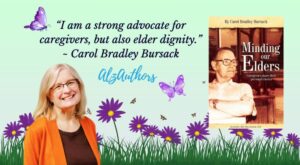Aphasia: Speech Problems Caused by Brain Injury
My uncle was an avid reader and loved playing word games. After a series of strokes, he had extreme difficulty communicating. The worst part of watching him struggle to find words was that he knew the words he did find were wrong. He was not only frustrated but humiliated, too.
The speech and language disorder that my uncle developed is called aphasia. It is common in individuals with a diagnosis of stroke, traumatic brain injury or other neurological conditions, such as Alzheimer’s disease and other forms of dementia. Aphasia is not uncommon, and, as caregivers, we must learn to help our loved ones communicate however we can.
What Is Aphasia?
The National Aphasia Association explains that aphasia is an acquired communication disorder that impairs a person’s ability to process language.
“This can impact a person’s ability to communicate and understand both the spoken and the written word,” explains Kathryn Kilpatrick, M.A., CCC/SLP, a speech-language pathologist with more than 40 years of experience, creator of Communication Connection and author of the five-volume Therapy Guides for Language and Speech Disorders workbooks.
It’s important to note that the brain’s inability to communicate is in no way connected to overall intelligence. This was the case with my uncle.
“Specific symptoms and their severity will vary, depending on the location and extent of the brain damage,” Kilpatrick says. “In some cases, a person’s symptoms may also include weakness or paralysis of their arm and/or leg.”
There are several different kinds of aphasia. Some are characterized by difficulty comprehending speech, while others are characterized by difficulty finding and producing words as well as stringing them together to form meaningful sentences. In some cases, the ability to read and/or write is also affected. Primary progressive aphasia (PPA) is one type that occurs due to neurodegenerative processes associated with Alzheimer’s disease and frontotemporal dementia.
Speech Therapy for Aphasia: When is comes to post-stroke rehabilitation and regaining skills following a brain injury, Kilpatrick stresses the importance of a person undergoing an evaluation by a speech-language pathologist (SLP) to determine not only what areas of language are affected, but…
Minding Our Elders: Caregivers Share Their Personal Stories. “For anyone having to walk the last segments of life with a loved one, read this.” …Delores
Discover the Difference. EGOSAN: The premium incontinence brand caregivers love – Now Available on Amazon.








